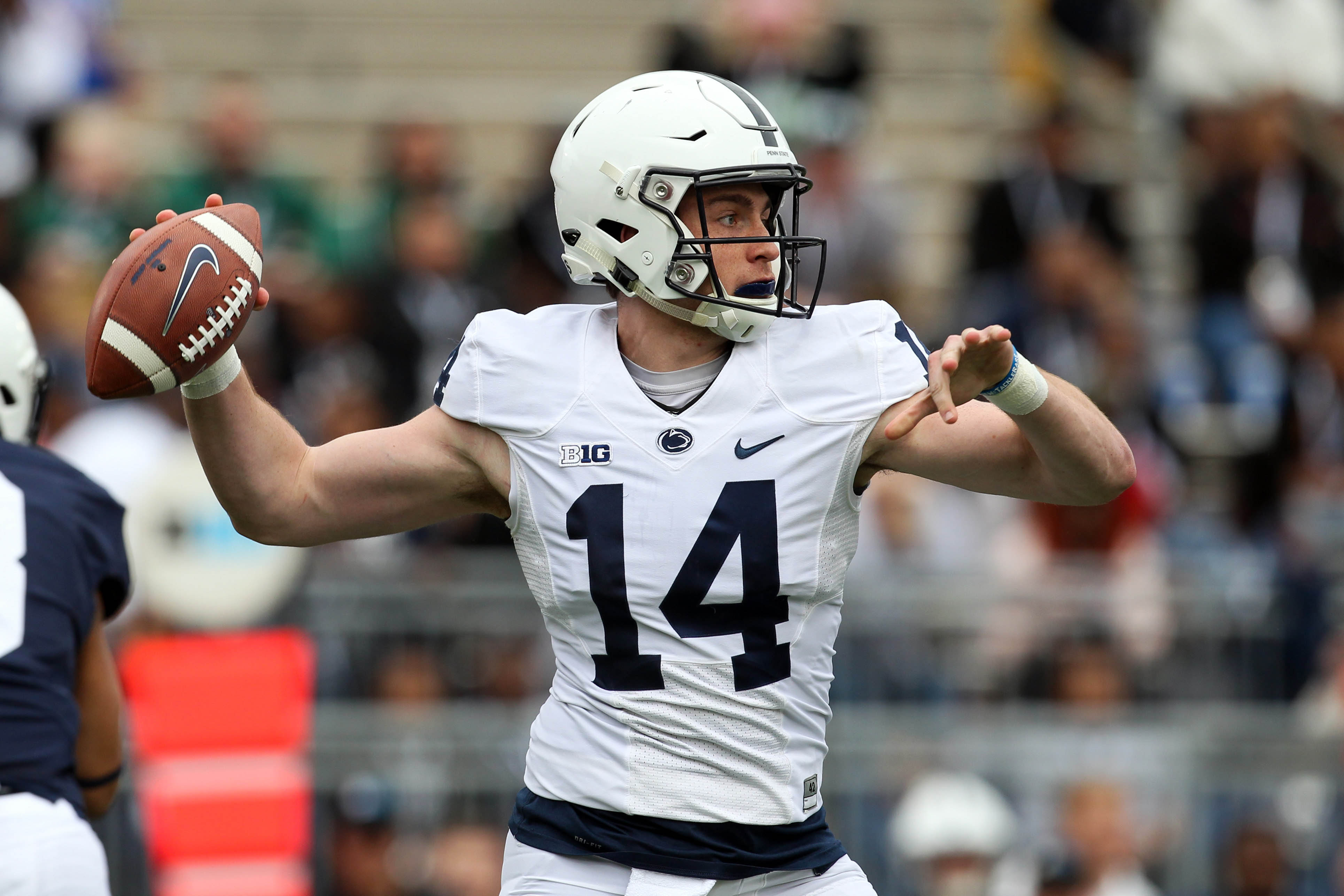Ad Disclosure

Why jumpstarting the Sean Clifford era might be the best route for Penn State in the long run
Penn State’s offense officially belongs to Sean Clifford.
OK, maybe using the word “officially” is a bit too much for April, especially knowing James Franklin’s mindset. But with Tommy Stevens transferring and closing the door on a return to Penn State, Clifford becomes the heir to the throne.
That’s right, a rising redshirt sophomore with a total of seven passes under his belt is about to be the leader of an offense that has been one of the most prolific in the B1G over the last three years. And you know what? It may actually be a good thing for the Nittany Lions.
Don’t misinterpret that notion as a knock on Stevens, losing a dual-threat quarterback with his skillset is certainly a blow. Regardless of whether he won the starting job or not, Penn State could’ve utilized Stevens in some capacity in the fall. Remember, this is the same guy who was willing to line up outside the numbers and compiled over 850 yards and 12 touchdowns as a passer, rusher and receiver in three years.
Stevens’ departure does allow Clifford to get a jumpstart on his career as Penn State’s starter, though. And, long term, that might actually be the best route for the program.

Penn State probably isn’t winning a division title this season — and likely wouldn’t have even if Stevens opted to stick around. There are too many questions hindering this team, particularly on the offensive line. And the skill positions, though really talented, are relatively young. Reaching Indianapolis seems like a longshot in 2019. That provides Clifford the perfect opportunity to get his feet wet as the primary quarterback for Penn State’s high-powered offense.
Clifford has already shown flashes of his potential in his limited exposure. Of his seven career passes, he’s completed five for 196 yards and two touchdowns. Even if those throws came in garbage time, those numbers are still pretty good.
He was raw in the Blue-White game which concluded the spring season, but read the run-pass options well and hit his targets in stride frequently. Clifford’s mobility was better than anticipated. The two biggest criticisms were that his decision making was questionable and he was a little too aggressive at times.
Both of those critiques can be fixed over time.
All in all, Clifford looked capable of leading a B1G offense during the spring game. Sure, he might be receiving a gentle nudge into a small campfire this season, but he won’t be engulfed by the flames.
The schedule plays favorably into Clifford’s hands, too. The Nittany Lions start the season with home games against Idaho and Buffalo before hosting rival Pitt. Penn State doesn’t really hit a rough stretch until a trip to Iowa on Oct. 12. After that the Lions play Michigan, Michigan State and Minnesota in consecutive weeks. The early portion of the schedule allows Clifford to acclimate himself to his new situation before marquee opponents come knocking on the door.
Basically, Clifford starts at the shallow side of the pool, allowing himself to adjust to the water temperature before wading into the deep end.
There’s also one other interesting tidbit as it relates to Clifford and getting an early jump on his career. Penn State enjoyed incredible success the last time it gave full control of the offense to a redshirt sophomore. That was in 2016, and Trace McSorley led the program to a B1G title for the first time in eight years.

During that three-year span, Penn State won 29 games, consistently ranked in the top 25 and McSorley authored the program’s record book.
Replicating McSorley’s production shouldn’t be the expectation for Clifford, at least not statistically. And this year’s Penn State team isn’t set up for the immediate success the 2016 squad enjoyed. The future of the program is incredibly bright, though. With a slew of four- and five-star prospects on the roster, the Nittany Lions are building a program capable of winning B1G titles and competing for the College Football Playoff.
The more experience Clifford receives early, the better off Penn State is in the long term.
Stevens’ decision to move on might’ve been surprising and disappointing, but it opened a window for Clifford. He’ll have full control of the offense for the next three seasons and Penn State won’t have to endure another transition for some time. Having that continuity and experience at the game’s most important position is critical.
Watching Stevens leave hurts Penn State in the short term. In the long run, though, this might be the best scenario for everyone involved.
Dustin grew up in the heart of Big Ten country and has been in sports media since 2010. He has been covering Big Ten football since 2014. You can follow him on Twitter: @SchutteCFB